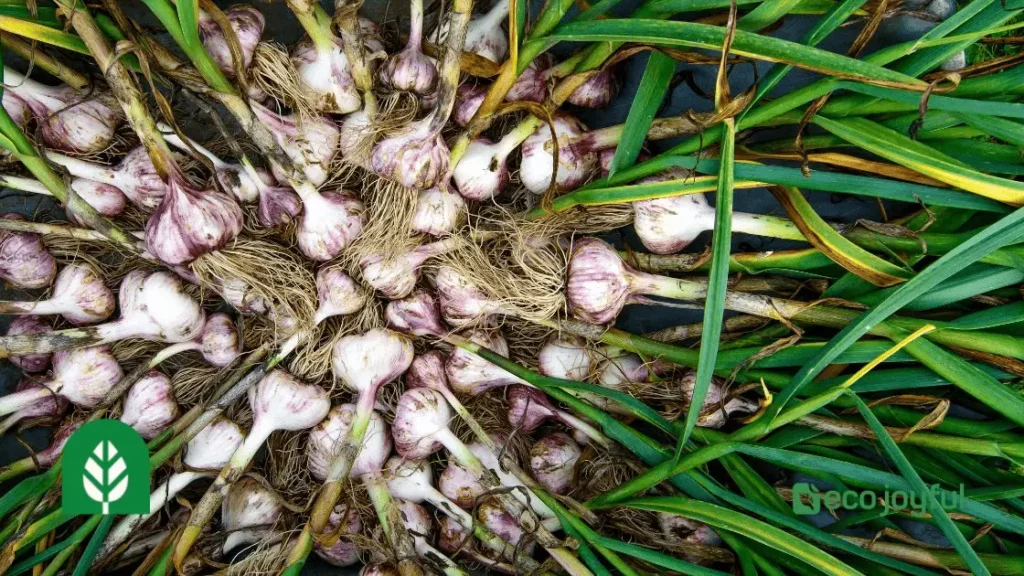Want to grow Powerful Herbs and improve your health at the same time? Here are five powerful herbs that can do just that: basil, rosemary, thyme, sage, and oregano.
These herbs not only add delicious flavor to meals, but they also provide numerous health benefits, including anti-inflammatory and antioxidant properties.
Table of Contents
List of Powerful Herbs for Off Grid Home
Basil
Basil is one of the most commonly found herbs in Indian households and its scientific name is Ocimum Basilicum. It is used profusely in Italian cuisine, especially in pesto sauce and margarita pizza.

Overview
Basil is an herb that belongs to the mint family and is native to tropical regions of Central Africa and Southeast Asia. It has been used for centuries for its medicinal properties and is considered a sacred plant in some cultures.
Benefits
- Anti-Inflammatory Properties: Basil contains flavonoids that possess anti-inflammatory properties. The essential oils in basil have been shown to inhibit the inflammation-causing enzyme cyclooxygenase (COX).
- Healthy Digestion: Basil leaves are rich in eugenol, which helps to strengthen digestion and soothe the stomach. Also, it has been used for thousands of years in Ayurvedic medicine to treat digestive issues such as constipation, bloating, and flatulence.
- Stress Buster: Basil is known as an adaptogen. It enhances the body’s natural response to physical and emotional stress. It helps to reduce their negative effects on the body over time.
- Immune Booster: Basil leaves contain natural essential oils, which have strong antibacterial properties. This helps to protect against various infections.
- Healthy Heart: Basil contains compounds that help to lower the level of cholesterol in the body. It also contains magnesium, which is essential for cardiovascular health.
Basil can be consumed in various forms, including fresh leaves, dried leaves, oil, and pill form. People can also use basil leaves to make basil tea, which has a calming and soothing effect on the body.
Garlic
Garlic is one of the most powerful herbs to grow in your garden and stay healthy. It is rich in antioxidants and has anti-inflammatory properties that support the immune system and heart health.

Overview:
Garlic has been used as a medicinal herb since ancient times, owing to its potent therapeutic properties. It is one of the most extensively researched herbs, and the evidence suggests that it has several health benefits, including antimicrobial, antidiabetic, and cardioprotective effects. Garlic has a pungent smell and a unique taste, making it an excellent seasoning in cuisine. It belongs to the Allium family, which also includes onions, shallots, and leeks.
Benefits:
Garlic contains a high concentration of sulfur compounds, such as allicin, which give it its characteristic taste and smell. These compounds have strong antioxidant properties that protect the body against damage from harmful free radicals. Here are some benefits of consuming garlic:
- Boosts Immunity: Garlic is known to have immune-boosting properties and can help fight a range of infections, including viral, bacterial, and fungal.
- Reduces Inflammation: Garlic contains compounds that have anti-inflammatory properties, which can help reduce inflammation in the body.
- Regulates Blood Pressure: Garlic has been shown to help regulate blood pressure, which can reduce the risk of developing heart disease.
- Improves Cholesterol Levels: Garlic can lower LDL cholesterol, also known as “bad” cholesterol, and increase HDL cholesterol, also known as “good” cholesterol.
- Protects Against Cancer: Some studies suggest that regular consumption of garlic may help reduce the risk of certain types of cancer, including stomach and colon cancer.
Incorporating garlic into your diet can provide several health benefits. Garlic supplements or fresh garlic cloves both offer similar benefits. However, it is essential to consult a healthcare professional before using garlic supplements, particularly if you’re taking medication for blood thinning or have a bleeding disorder.
Turmeric
Turmeric is a spice commonly found in Southeast Asia and India. It has been used for centuries as an ingredient in dishes and for medicinal purposes. The active ingredient in turmeric, called curcumin, has powerful anti-inflammatory and antioxidant properties that make it an excellent addition to any diet.

Overview
Turmeric is a rhizomatous herbaceous perennial plant that belongs to the ginger family. It has dark orange roots, which are dried and ground to make the yellow powder known as turmeric.
Benefits
The curcumin in turmeric has numerous health benefits. Here are a few:
| Benefit | Description |
|---|---|
| Anti-inflammatory | Turmeric has been shown to help reduce inflammation in the body, which can lead to a number of chronic diseases. |
| Antioxidant | Curcumin is a powerful antioxidant that helps protect cells against damage caused by free radicals. |
| Brain function | Studies have suggested that curcumin can improve cognitive function and may even help reduce the risk of Alzheimer’s disease. |
| Heart health | Turmeric may help lower bad cholesterol levels, reduce inflammation, and improve blood vessel function, all of which can help reduce the risk of heart disease. |
How To Add Turmeric To Your Diet
There are many ways to add turmeric to your diet, including:
- Add it to soups, stews, and curries for extra flavor and health benefits.
- Sprinkle it on roasted vegetables for a tasty and healthy side dish.
- Make turmeric tea by steeping turmeric powder in hot water with honey and ginger.
- Mix turmeric powder into salad dressings or marinades for an extra antioxidant boost.
No matter how you choose to use turmeric, the important thing is that you add it to your diet for its many health benefits.

Credit: www.healthline.com
Rosemary
When it comes to powerful herbs, Rosemary is a herb that deserves a lot more attention. It is an herb commonly used for culinary purposes, but it also offers several health benefits. Rosemary is easy to grow and can thrive in a variety of conditions, making it an ideal addition to any herb garden.
Overview
Rosemary is a woody perennial herb that is native to the Mediterranean region. It has a flavor similar to pine and is commonly used as a spice in cooking. The leaves of the Rosemary plant are rich in essential oils and have a strong aroma.
Benefits
- Rosemary is known to improve digestion and relieve digestive problems such as gas, bloating, and constipation.
- It also has anti-inflammatory properties that can help reduce inflammation in the body.
- Studies have shown that Rosemary may improve brain function and memory.
- It also has antioxidant properties that can protect the body from harmful free radicals.
- Add to that its antibacterial properties, which can help fight against infections.
Growing Rosemary
Rosemary is a hardy plant that can tolerate a range of conditions. It prefers well-drained soil and plenty of sunlight. It is best to grow it in a pot or container as it can grow into a large bush. Regular pruning will help keep the plant compact and in shape.
Using Rosemary
Rosemary is a versatile herb that can be used in a variety of dishes. It pairs well with meats like chicken, lamb, and pork. It can also be added to soups, stews, and sauces. Rosemary-infused olive oil is a great way to add flavor to salads and vegetables.
Conclusion
Rosemary is a powerful herb that offers several health benefits and is easy to grow. Incorporate this herb into your diet and enjoy its many benefits!
Ginger
Ginger is a spice with many benefits due to its anti-inflammatory and antioxidant properties. It has a warm, intense flavor and is used in many cuisines worldwide. Ginger is also easy to grow in pots or gardens, making it a great addition to your plant collection. Let’s explore the benefits of ginger.
Overview
Ginger, or Zingiber officinale, is a flowering plant native to Southeast Asia. It belongs to the Zingiberaceae family, which includes turmeric and cardamom. Ginger has been used in traditional medicine for centuries to treat various health issues, including nausea, colds, and inflammation.
Benefits
| Benefit | Description |
| Reduces inflammation | Gingerol, a compound found in ginger, has anti-inflammatory properties that may help reduce inflammation and pain in the body. |
| Improves digestion | Ginger may help to increase the production of digestive fluids and enzymes, which can aid in food breakdown and improve digestion. |
| Boosts immune system | Ginger contains antioxidants that help to support the immune system, protecting against infections and illnesses. |
| Relieves nausea | Ginger has natural antiemetic properties and can help reduce nausea and vomiting, particularly during pregnancy or chemotherapy treatment. |
| Lowers blood sugar | Ginger may help improve insulin sensitivity and regulate blood sugar levels, which can benefit individuals with type 2 diabetes. |
Overall, ginger is a versatile herb that can bring many health benefits to your life. Whether you consume it in tea, add it to your meals, or use it as a natural supplement, including ginger in your daily routine can provide you with various benefits.

Credit: www.amazon.com
Conclusion
Incorporating these powerful herbs into your daily routine can have significant health benefits. Whether you want to improve digestion, boost immunity, or reduce inflammation, nature has provided us with the tools we need to stay healthy. From the antioxidant-rich rosemary to the calming effects of chamomile, growing these herbs is an accessible and affordable way to enhance your wellness journey.
Give them a try and see the difference for yourself. Your body will thank you.





